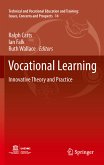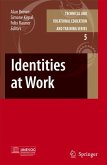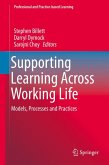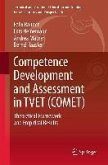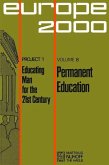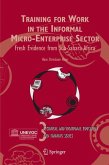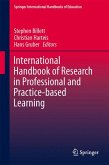In this Handbook readers will find information on TVET models from all over the world, reflections on the best and most innovative practice, and dozens of telling case studies. The Handbook presents the work both of established as well as the most promising young researchers, giving it a real cutting edge and features unrivalled coverage of developments in research, policy and practice in TVET. It will assist those involved in TVET at any level in making informed decisions and further advance and improve the field and to bridge the gap between vocational and academic education in the 21st century.
This Springer work is particularly relevant today as TVET faces major challenges posed by the move in many countries towards the knowledge-based economy ushered in by new information and communication technologies. Traditional occupations and apprenticeships are affected as the boundaries between manual and mental work fade. National economies are evolving rapidly as market forces take full advantage of the opportunities offered by globalization.
Work, of course, has always been a major feature in people's lives. Not only does it provide them with the means of survival-food, clothing and shelter-but it also has a major impact on their self-identity, social status, standard of living and quality of life. In this respect, the shift from the Industrial Age to the Information Age has considerable implications for education and training.
Numerous questions arise from the shift in theglobal labour marketplace, questions that this volume provides answers to. How do we anticipate change in the labour market? How respond to the dilemma of providing appropriate educational and training courses in a fluid world economy? Governments need reliable mechanisms to predict economic trends and the demand for manpower. Governments, enterprises and trade unions alike must focus on the methodologies of teacher training, curriculum development, the school-to-work transition, gender, and equality and equity. They will need to offer flexible pathways to training, find new ways of moulding human capital, and work out how they cope with unemployment and an ageing workforce-to name only a few.
These are just some of the topics addressed in this Handbook. It draws on international experience to identify the best answers and the best procedures to improve TVET, and provides comprehensive coverage of cutting-edge practices in research and policy as we face the vicissitudes of the twenty-first century.
Dieser Download kann aus rechtlichen Gründen nur mit Rechnungsadresse in A, B, BG, CY, CZ, D, DK, EW, E, FIN, F, GR, HR, H, IRL, I, LT, L, LR, M, NL, PL, P, R, S, SLO, SK ausgeliefert werden.
"The authors seek to consider the nature and implications of the changes that have taken place in the world of work during the twentieth and twenty-first centuries. ... The proposed readership might include researchers, teachers and students in the field of education, but it could also be broadened to policy-makers at various levels of government and those involved in business and enterprise, employers and employees. ... will, no doubt, comprise an essential work of reference, now and in the future." (Phyllida Coombes, Studies in Continuing Education, Vol. 32 (2), July, 2010)
"This international handbook provides an impressive amount of perspectives on the changing nature of work and its consequences for education and learning with a specific emphasis on vocational education and training (VET). ... This book should be a valuable resource for researchers, policy-makers and educators. ... Personally, I will go back and use it as an encyclopaedia. I will also recommend my students and colleagues to do the same." (Gun Berglund, Studies in Continuing Education, Vol. 32 (2), July, 2011)
"This volume, whilst contributing an important element to the extensive area of education and workplace learning covered in the handbook, can also be usefully used as a separate reference for the TVET areas ... . The volume provides conceptual frameworks for examining the management of TVET systems as well as practical examples from Australia and worldwide. The international perspectives that this volume provides from Asia, South America, Africa and Europe are a particular strength of this ... handbook overall." (Kate Collier, Studies in Continuing Education, Vol. 32 (2), July, 2011)
"The handbook discusses current practice in technical and vocational education and training (TVET). ... this is an informative, very well written, accessible book that will appeal to a wideaudience. It provides the background, context and rationale for many changes taking place within technical and vocational education and training. The book achieves its aim of 'bridging academic and vocational learning' through its clear, critical discussion and wide use of case studies from international contributors." (Gillian Davison, Studies in Continuing Education, Vol. 32 (2), July, 2011)
"The focus of this volume is international TVET formal programs and issues related to TVET for youth and the ageing. ... Its audience is policy-makers, governmental bodies and international organizations ... . UNESCO, a long time policy leader in international adult education treats the complex, multi-issued phenomenon of formal adult and vocational learning in a balanced, informed and timely way. Questions of access, quality, engagement, outcomes and impact around TVET are realistically and clearly presented and supported." (Barbara P. Heuer, Studies in Continuing Education, Vol. 32 (2), July, 2011)
"The strength of this volume lies in the academic depth within these 28 papers, which are consistently and accurately formatted and referenced. Most of the papers attempt to be international in terms of their content. ... The collection therefore showcases backgrounds and perspectives of technical and vocational education and training (TVET) seen from a higher education perspective." (Barry Golding, Studies in Continuing Education, Vol. 32 (2), July, 2011)



